This article was co-authored by Dr. Niall Geoghegan, PsyD. Dr. Niall Geoghegan is a Clinical Psychologist in Berkeley, CA. He specializes in Coherence Therapy and works with clients on anxiety, depression, anger management, and weight loss among other issues. He received his Doctorate in Clinical Psychology from the Wright Institute in Berkeley, CA.
There are 7 references cited in this article, which can be found at the bottom of the page.
This article has been viewed 28,671 times.
Anxiety can be triggered even in the smallest of ways. Learn to accept that some triggers are simply unavoidable. By first acknowledging the anxiety you have, you can begin to handle and cope with these triggers when they occur. Find support through friends and family, while also focusing on how to be stronger within yourself. Know that you are not alone in this process, and can learn to handle anxiety triggers one step at a time.
Steps
Finding Ways to Cope
-
1Recognize your body's responses to a trigger. Your body's physical reaction to a trigger is actually an evolutionary survival mechanism, telling you to be active and protect yourself. For some people, though, these responses can go into overdrive and may not shut off when they're supposed to. Paying attention to your particular symptoms of anxiety will alert you to the fact that your body is telling you something, so you'll know it's time to evaluate your situation and decide what is the safe, appropriate response. Symptoms of anxiety could include:
- Extreme worry or confusion
- Difficulty concentrating
- Frustration, irritability or agitation
- Dizziness or lightheadedness
- Headaches or migraines
- Difficulty sleeping
- Excessive eating
- Sweating, trembling, or a racing heartbeat
- Nausea, vomiting, or diarrhea
-
2Use deep breathing exercises. Breathing exercises help to lessen anxiety and lower your blood pressure. They are simple ways to help you cope when your anxiety is triggered. Deep breathing helps to take away focus from your anxiety, and put the focus on listening to your body. [1]
- One example of this is to slowly inhale for five seconds. Hold your breath and close your eyes for five seconds. Then very slowly exhale for five to ten seconds. Repeat this exercise multiple times until you feel less anxious.
Advertisement -
3Redirect your negative thoughts after a trigger. Step away from the anxious situation, and find a safe space where you can catch your breath and pay attention to your body. For example, go outside where there is fresh air, or a private room that makes you feel protected. Then, try to get your mind away from the trigger of your anxiety - observe the room around you, breathe deeply, and try to think of something you find pleasant.
-
4Try visualization exercises. These exercises help to redirect your mind to calmer thoughts. They can help you forget the negative thoughts and replace them with positive ones. It often works best when you are alone or have a quiet space to do the exercise.
- This exercise can be practiced anywhere, but it is best done when you can sit and think alone for a few minutes.
- One example of this exercise is to close your eyes. Imagine a comforting and safe space. It can be real or imaginary. As you imagine this place, think about the colors, smells, sounds, and sensations. This place should be a relaxing and soothing place that makes you feel better.
-
5Face your fears one step at a time. Many therapists use exposure therapy to help you face your fears in a gradual way. As you face each fear, you will use relaxation techniques, such as deep breathing, to help you stay calm and become more comfortable with the situation.
- Think about ways to expose yourself to the things or places that cause you anxiety. Start with something very small at first, rather than putting yourself into a difficult or scary situation all of a sudden.[2] You may even want to make a list of your fears and rank them from least to most frightening. Identify some healthy coping techniques you can use as you face these fears, such as deep breathing, meditation, or progressive muscle relaxation.
- For example, if you have a fear of public speaking and want to get more comfortable, trying making a speech in front of a few trusted friends and family first. Practice in front of them before going out into a larger audience.
- Maybe you feel anxious about being on a highway after a recent car accident and do not want to drive on the freeways anymore. Consider practicing driving with a friend or family member during a low traffic time. Try only going a short distance on the freeway, such as getting off at the next exit after entering the freeway.
-
6Take care of your body. Your body is connected to your mind. Treat it with care. Make sure that you sleep well, eat healthy, and exercise. These activities will help you to better manage anxiety triggers when they occur.[3]
- Get active. Go to the gym, take walks regularly, go hiking or biking, do yoga, or take fitness classes.
- Eat healthy. Give your body the proper nutrients it needs. Limit caffeine and drink more water instead. Choose fruits and vegetables over junk food.
- Sleep well. Make sure to get eight or more hours of sleep. Listen to your body when it’s tired and needs more rest.
- Avoid using tobacco products, alcohol, or drugs. These substances will likely harm your body in the long-run, particularly when used in excess.
-
7Do activities that calm you. Make time to relax your mind and body. Anxiety triggers can feel less overwhelming when you have activities that help you handle these emotions effectively. Consider these types of activities:
- Meditation or gentle yoga.
- Making crafts or artwork.
- Building things or working on home projects.
- Playing music.
- Taking a hot bath or shower.
- Playing with or hugging a pet.
Challenging Anxious Thoughts
-
1Challenge negative thoughts that are triggered. Negative thoughts can end up making you feel out of control. Through self-awareness, you can develop skills to challenge negative thoughts and begin to shape them into positive thoughts.[4]
- Identify automatic negative thoughts. For example, when you're socially anxious, you may think, "People will think I'm stupid." Think carefully about how this thought is self-defeating.
- Analyze these thoughts. Ask yourself questions about if your thoughts are fact. For example, Do you know for sure that you'll give a bad impression? Or is this just your mind second-guessing yourself?
- Focus on replacing these negative thoughts with positive ones. For example, "Even if this presentation is nerve-racking, it will be short and I have prepared ahead of time."
-
2Accept that some triggers are unavoidable. Life has uncertainty. Finding peace with uncertainties in life can take practice. Rather than trying to avoid all anxiety, find understanding within yourself that some things in life are unavoidable.[5]
- Understand that by accepting your anxiety, you can see your anxiety as inevitable but transitory. Like all emotional states, it will come and go.
- Accept that you can't control certain things and people. By knowing this, you can feel more free from your anxiety. Focus on the things that you can control, and accept the things you can't.
-
3Find peace through self-affirmation. When you feel more in control of your mind and body, you'll feel more at ease with unavoidable anxiety triggers. You can see yourself as strong and confident. You begin to challenge your negative thinking and anxiety.
- Write words of self-affirmation in a journal. Journaling can help to free your mind and gain clarity on what's bothering you.
- Say words of self-affirmation out loud. For example, say, "Every breath I inhale calms me and every breath I exhale takes away tension" or "I transcend stress of any kind. I live in peace."
Getting Support
-
1Learn how to cope better through therapy. If you are continuing to have difficulty with managing your anxiety and triggers, therapy may be a beneficial option to help you better handle your symptoms. Professional counselors and therapists are trained specifically to help with coping skills such as anxiety triggers.[6]
- Find therapists in your area by getting a list of providers through your health insurance.
- Consider contacting your school counselor, university counseling center, or your work’s Employee Assistance Program for referrals to counseling.
- Find out about if the therapist has expertise in your anxiety triggers. You can even ask the therapist what kind of evidence-based practices they use. Different types of therapy techniques include CBT, DBT, Solution Focused, Strengths Based, and Prolonged Exposure Therapy. Research the techniques the therapist uses to learn more about them.
-
2Get advice from a doctor or mental health professional. There may be other treatment options to help with your anxiety if it continues to impair your daily life. Unavoidable anxiety triggers mean that you may have to encounter certain people or situations regularly and feel overwhelmed often. Talk with your health care provider or a mental health specialist about medication options if other strategies are not working for you.[7]
- A doctor or psychiatrist can prescribe medications to help with your symptoms. Talk with your primary care provider about options or a referral to a specialist for advice.
- Talk with a mental health specialist about your medication treatment, and whether it has been beneficial. Often a combination of medication and therapy are best for severe anxiety.
-
3Join a support group. Many people face anxiety that is overwhelming and unavoidable. Depending on the type of anxiety that you’re facing, talk with a counselor or therapist about support groups in your area.[8]
- Support groups are often less expensive than individual therapy.
- Working as a group on your anxiety symptoms can help you feel less isolated or judged. A support group is a safe space to engage with others about your concerns.
- Many support groups are led by trained mental health professionals or peer support specialists who have been through the same anxious feelings as you.
-
4Spend more time with friends and family who encourage you. Avoid isolating yourself when anxiety hits. Often this action will in turn make you feel less willing to handle anxiety the next time. After an anxiety-provoking situation has occurred, instead focus on turning to friends or family that support and reassure you.[9]
- Have two or three friends or family that you can call when you’re feeling anxious or overwhelmed. Talk with them in advance about them acting as your “calling buddies.”
- Do activities with your friends or family. If you are hesitant to do things in groups, then find activities to do with just one friend or family member.
- Trust and confide in them. The people that love and care about you often want to be helpful and supportive as you learn to handle your anxiety.
Expert Q&A
-
QuestionCan you ever fully get rid of anxiety?
 Dr. Niall Geoghegan, PsyDDr. Niall Geoghegan is a Clinical Psychologist in Berkeley, CA. He specializes in Coherence Therapy and works with clients on anxiety, depression, anger management, and weight loss among other issues. He received his Doctorate in Clinical Psychology from the Wright Institute in Berkeley, CA.
Dr. Niall Geoghegan, PsyDDr. Niall Geoghegan is a Clinical Psychologist in Berkeley, CA. He specializes in Coherence Therapy and works with clients on anxiety, depression, anger management, and weight loss among other issues. He received his Doctorate in Clinical Psychology from the Wright Institute in Berkeley, CA.
Clinical Psychologist Unfortunately, no. Some anxiety is unavoidable. There are always going to be triggers that arise and the most important thing to do in the moment is control the energy of your body. Focus on your breathing, going slow and deep through the nose and out through pursed lips to calm your system and clear your mind.
Unfortunately, no. Some anxiety is unavoidable. There are always going to be triggers that arise and the most important thing to do in the moment is control the energy of your body. Focus on your breathing, going slow and deep through the nose and out through pursed lips to calm your system and clear your mind.
Warnings
- Avoid using alcohol or drugs to reduce your anxiety. If your anxiety is causing you to drink regularly in order to cope, seek help and advice about alternative ways to your symptoms. If you rely on drugs or alcohol to manage your anxiety, contact SAMHSA's National Helpline for substance abuse treatment referrals at 1-800-662-4357 or http://www.samhsa.gov/find-help/national-helpline⧼thumbs_response⧽
References
- ↑ http://psychcentral.com/lib/15-small-steps-you-can-take-today-to-improve-anxiety-symptoms/
- ↑ https://www.anxietybc.com/sites/default/files/ToleratingUncertainty.pdf
- ↑ http://www.helpguide.org/articles/anxiety/social-anxiety-disorder-and-social-phobia.htm
- ↑ https://www.nimh.nih.gov/health/topics/anxiety-disorders/index.shtml
- ↑ http://www.healthyplace.com/blogs/anxiety-schmanxiety/2014/10/avoiding-anxiety-triggers-isnt-always-possible/
- ↑ http://psychcentral.com/lib/15-small-steps-you-can-take-today-to-improve-anxiety-symptoms/
- ↑ https://www.psychologytoday.com/blog/hide-and-seek/201210/coping-anxiety
- ↑ http://www.helpguide.org/articles/anxiety/social-anxiety-disorder-and-social-phobia.htm
- ↑ http://kidshealth.org/en/teens/anxiety-tips.html?WT.ac=ctg
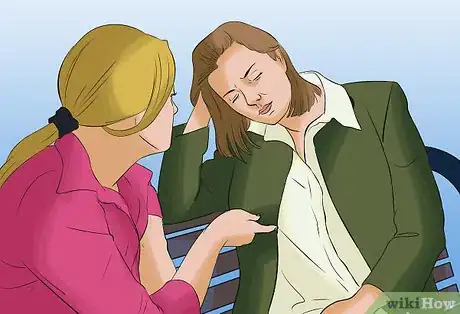
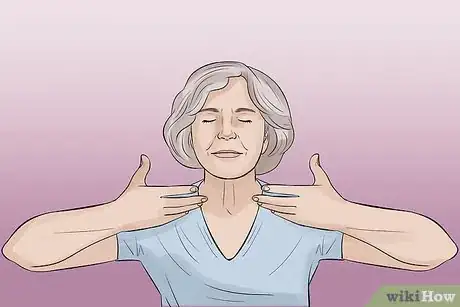
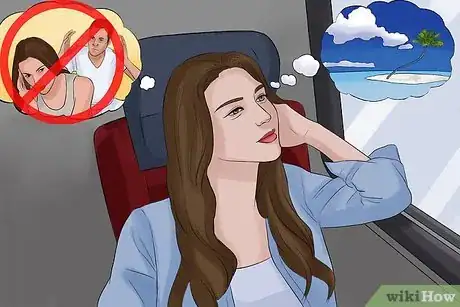
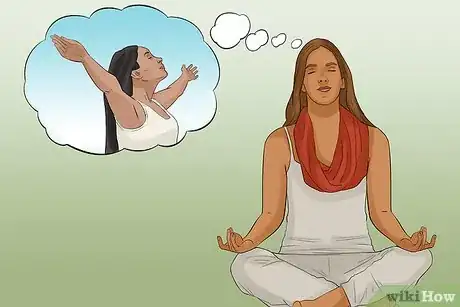
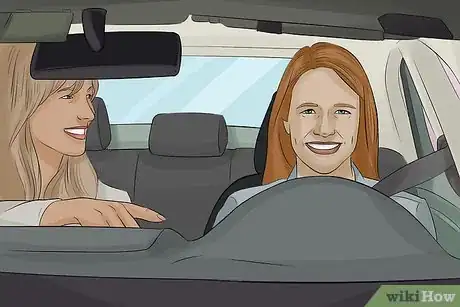
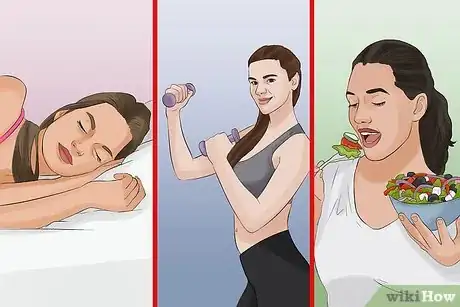
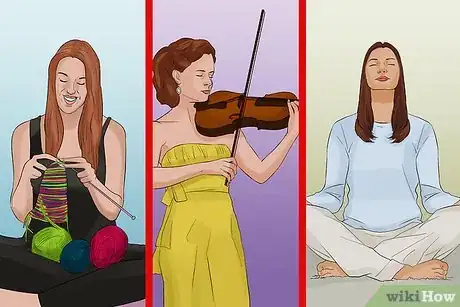
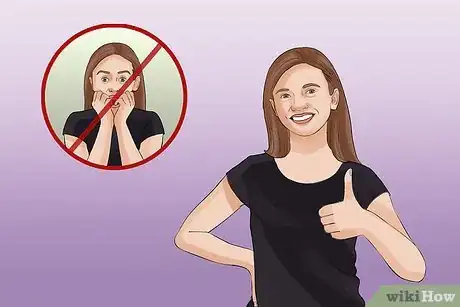
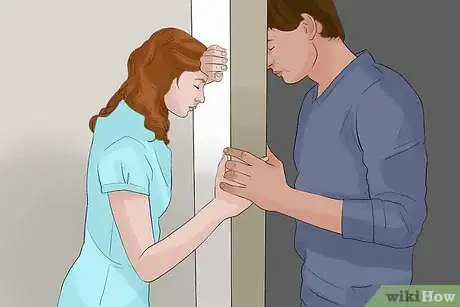

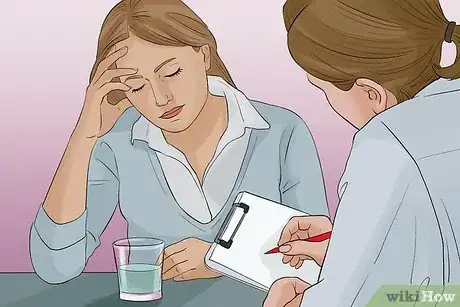
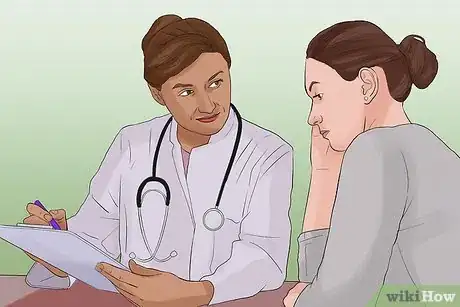
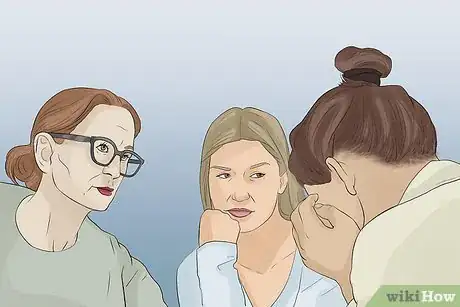
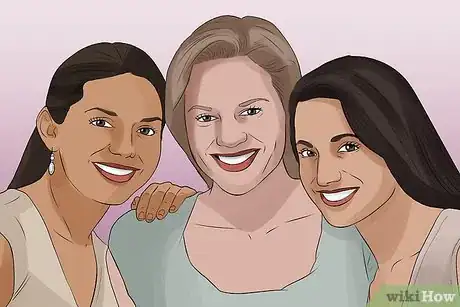


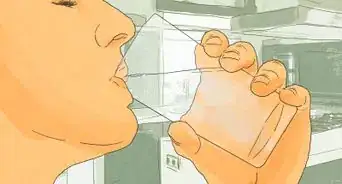

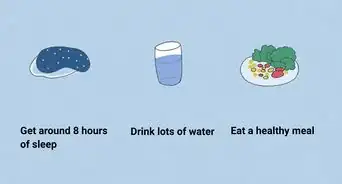
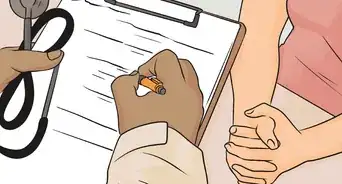



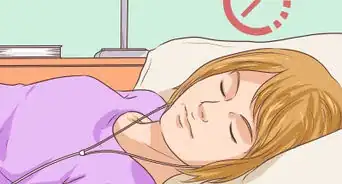
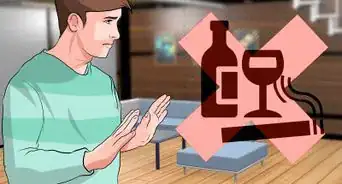

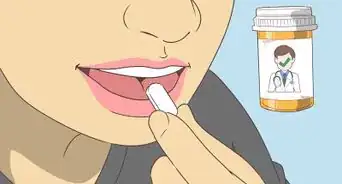










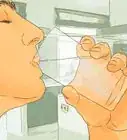




































Medical Disclaimer
The content of this article is not intended to be a substitute for professional medical advice, examination, diagnosis, or treatment. You should always contact your doctor or other qualified healthcare professional before starting, changing, or stopping any kind of health treatment.
Read More...